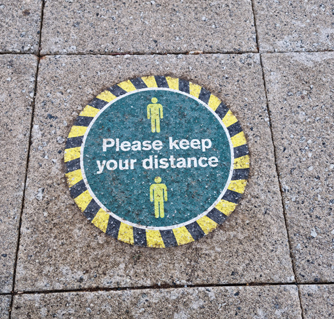Security has performed well during the covid-19 pandemic since spring 2020: the sector has adapted, been flexible, learnt new skills, and has been recognised as ‘essential’. That’s among the findings of the latest piece of research by Prof Martin Gill’s consultancy Perpetuity Research under the SRI (Security Research Initiative) banner.
As with previous SRI studies over the years, the study of a topic of current interest included an industry survey and more detailed interviews. The 80-page report, ‘Covid-19 and the implications for the security sector: what happened and what has been and is being learned?’, suggests that the status of security may have increased during the pandemic, but not necessarily in comparison with other functions. And that appreciation for security may start to fade when we enter a ‘new normal’.
As for the survey –
– most, 83 per cent of respondents felt that overall security had performed well in the crisis.
– 74pc agreed or strongly agreed that security professionals have developed new skill sets that will be invaluable.
– 59pc felt that security would retain a greater priority than held previously due to fear of future pandemics.
– 55pc indicated that there are other service functions (such as business continuity) that stood out more for their achievements than security did during the pandemic.
– 65pc felt the pandemic may hasten a shift to more technology and less personnel.
– 69pc thought it was right to expect marked improvements and innovation in security from now on.
– and 75pc felt that despite good intentions, the financial constraints – and the the ‘race to the bottom’ for contracts, as pre-covid – that are likely to follow the pandemic will undermine any progress.
The survey also raised concerns about increases in crime and risk – online and in the physical world – and other challenges such as managing the mental health of workers, including security staff. Despite the suffering during the pandemic and lockdowns, opportunities were apparent – a majority of respondents thought demand would increase for some services, such as remote monitoring and mobile patrols; and for technology such as CCTV and touchless access control.
Prof Martin Gill said: “It is crucial that the sector is effective in communicating that the value of security is not just in responding to a crisis. Our sample though also pointed to new opportunities. Some were positive about what next, others less so, their words should be heeded.”
About the Security Research Initiative
It’s sponsored by the security sector (buyers and suppliers) and supported by security associations such as ADS, ASIS UK Chapter, BSIA, IFPO, SyI and the SASIG, and involves an annual study. The reports are free to read, to provide a more informed information base about the workings of the security sector. Visit https://perpetuityresearch.com/security-researchinitiative/. Over the years SRI studies have covered the cyber and physical worlds (and convergence of the two), such as the pros and cons of outsourced and in-house guarding; buyers of security services; and what is excellence in security.
Sponsors of this latest, pandemic piece of research were Axis Communications, Bidvest Noonan, Interr, Interserve, M&S, Mitie, OCS, audit firm PwC, the Security Industry Authority and Sodexo.
More in the December 2021 print edition of Professional Security magazine.










